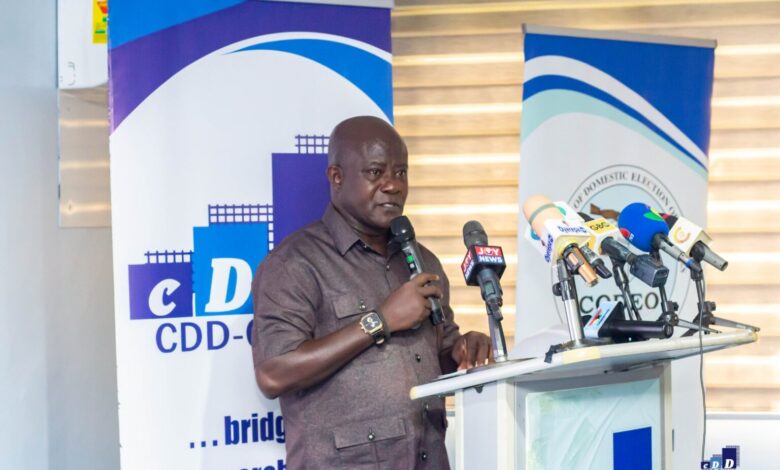
The 2024 general elections in Ghana have been marred by a worrying rise in electoral violence, with 76 separate incidents recorded, according to a joint report by the Ghana Center for Democratic Development (CDD-Ghana), the Coalition for Domestic Election Observers (CODEO), the West Africa Network for Peacebuilding (WANEP), and the National Elections Response Group (NERG).
This marks an unsettling continuation of electoral violence that has plagued Ghana’s elections for years, undermining the integrity of the democratic process and posing significant risks to national security.
Breakdown of Election Violence
The reported incidents highlight the severity of the unrest, which included destruction, deaths, and injuries:
- Property Destruction and Vandalism (24 cases)
Key facilities, including ballot papers, pink sheets, and Electoral Commission (EC) offices, were destroyed in multiple regions. Notably, EC offices in the Damango and Ayensuano constituencies were set ablaze, compromising the credibility of the electoral process. - Fatalities (6 deaths)
Among the most tragic incidents was the killing of Haruna Shaibu, a 31-year-old steel bender, who was shot dead at the Nyankpala lorry station in the Tolon constituency. Another fatality, Mukila Ziblim, was killed by a stray bullet in Damongo, demonstrating the lethal nature of the violence surrounding the elections. - Injuries (46 cases)
46 people sustained injuries, with three in critical condition. Notable incidents included a shooting at the Nsawam collation center, where one victim, Richard Taboh, was injured.
The Path Forward: CDD-Ghana and WANEP’s Response
In light of the escalating violence, CDD-Ghana, in partnership with WANEP, has outlined a multi-step approach to ensure justice for victims and accountability for those responsible:
- Validation and Follow-Up
The CDD-Ghana Security Sector Governance team is conducting follow-up operations to verify data on the reported incidents. This includes engaging with local authorities, victims, and their families to collect detailed accounts of each case, ensuring accuracy and transparency. - Tracking Legal Progress
A comprehensive tracking mechanism will monitor the progress of each case within the justice system. Volunteers trained by CODEO will ensure that cases are followed up with law enforcement agencies and the judiciary. Regular updates will be provided to the public through quarterly press briefings. - Victim Engagement Platforms
The initiative will create platforms for victims and their families to engage with investigators, providing a space for updates and fostering cooperation between the public and authorities. This approach aims to reduce suspicion and increase public confidence in the investigation and prosecution process.
Legal Developments and Arrests
To date, 132 individuals have been arrested in connection with the election violence. Among them:
- 45 suspects remain in custody, while
- 71 individuals are on police inquiry bail, and
- 16 individuals have been granted court bail.
Despite these arrests, the slow pace of justice and the lack of significant progress in prosecuting electoral violence cases has raised concerns about impunity and the effectiveness of the country’s legal system in addressing election-related crimes.
Implications for Ghana’s Democracy
While the efforts of CDD-Ghana, WANEP, and their partners provide hope for increased transparency and accountability, the continued violence and delays in justice underscore the deep-seated challenges that remain in Ghana’s electoral system. These incidents not only tarnish the country’s democratic reputation but also signal the urgent need for comprehensive reforms to prevent future outbreaks of violence.
As Ghana prepares for subsequent elections, ensuring robust mechanisms for preventing violence and delivering swift justice will be critical in upholding the integrity of its democratic processes and safeguarding the future of its political stability.





